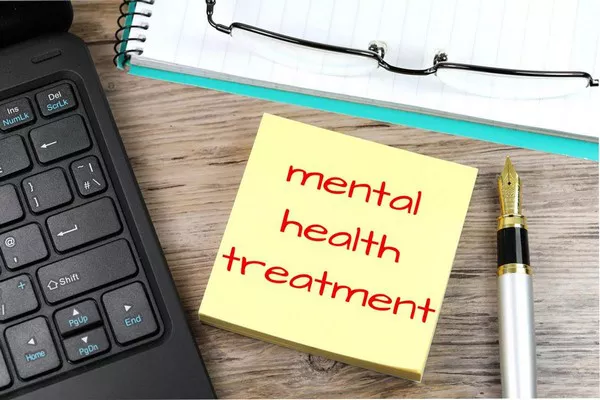Developmental Trauma Disorder (DTD) is a relatively new concept in the field of mental health, yet it represents a critical framework for understanding the impact of early life trauma on psychological development. In this comprehensive article, we delve into the causes, symptoms, and management strategies for Developmental Trauma Disorder, shedding light on this complex and often misunderstood condition.
Understanding Developmental Trauma Disorder
Developmental Trauma Disorder is a diagnostic framework proposed to capture the profound and pervasive impact of early life trauma on an individual’s psychological development. Unlike Post-Traumatic Stress Disorder (PTSD), which typically arises from a single traumatic event, DTD results from chronic, interpersonal trauma experienced during critical periods of development, such as infancy, childhood, and adolescence.
The key distinguishing feature of DTD is the disruption it causes to fundamental aspects of psychological functioning, including self-regulation, interpersonal relationships, and affective modulation. Individuals with DTD may struggle with emotional dysregulation, difficulty forming and maintaining healthy relationships, and disruptions in identity development.
Causes of Developmental Trauma Disorder
Developmental Trauma Disorder typically arises from exposure to chronic and pervasive trauma during critical periods of development. Common sources of trauma include:
Early Childhood Abuse and Neglect: Physical, emotional, or sexual abuse, as well as neglectful caregiving, can profoundly impact a child’s development and increase their risk of developing DTD.
Family Dysfunction: Growing up in a chaotic or dysfunctional family environment, characterized by substance abuse, domestic violence, or mental illness, can contribute to the development of DTD.
Community Violence: Exposure to violence in the community, such as witnessing crime or experiencing neighborhood violence, can also contribute to the development of DTD.
Institutional Trauma: Children who have spent time in foster care, orphanages, or other institutional settings may experience trauma related to separation from caregivers, disruptions in attachment, and inadequate caregiving.
Symptoms of Developmental Trauma Disorder
The symptoms of Developmental Trauma Disorder can vary widely depending on the individual’s unique experiences and developmental history. However, common symptoms and manifestations of DTD may include:
Emotional Dysregulation: Individuals with DTD may struggle to regulate their emotions, experiencing intense and unpredictable mood swings, anger outbursts, or emotional numbness.
Impaired Attachment: Disruptions in early attachment relationships can result in difficulties forming and maintaining healthy relationships throughout life. Individuals with DTD may struggle with trust, intimacy, and forming secure attachments.
Cognitive Impairments: Chronic trauma can impact cognitive development, leading to difficulties with attention, memory, and executive functioning.
Behavioral Problems: Children and adolescents with DTD may exhibit a range of behavioral problems, including aggression, defiance, self-harm, or substance abuse.
Somatization: Physical symptoms such as headaches, stomachaches, or other somatic complaints may be common among individuals with DTD, reflecting the interconnectedness of psychological and physical health.
Dissociation: In response to overwhelming trauma, individuals with DTD may dissociate or disconnect from their thoughts, feelings, and surroundings as a coping mechanism.
Management of Developmental Trauma Disorder
The management of Developmental Trauma Disorder requires a comprehensive and multidisciplinary approach that addresses the complex needs of individuals affected by trauma. Key components of effective management may include:
Trauma-Informed Therapy: Trauma-focused therapy modalities, such as Trauma-Focused Cognitive Behavioral Therapy (TF-CBT), Eye Movement Desensitization and Reprocessing (EMDR), or Dialectical Behavior Therapy (DBT), can help individuals process traumatic experiences, develop coping skills, and regulate their emotions.
Attachment-Based Interventions: Therapeutic approaches that focus on repairing and strengthening attachment relationships, such as Parent-Child Interaction Therapy (PCIT) or Theraplay, can be beneficial for individuals with DTD who have experienced disruptions in early attachment.
Medication Management: In some cases, medications such as antidepressants, mood stabilizers, or anti-anxiety medications may be prescribed to help alleviate symptoms of depression, anxiety, or mood instability associated with DTD.
Supportive Services: Access to supportive services such as case management, advocacy, peer support groups, and community resources can provide individuals with DTD with the practical assistance and social support they need to navigate their recovery journey.
Holistic Approaches: Holistic interventions such as yoga, mindfulness meditation, art therapy, or equine-assisted therapy can complement traditional therapeutic approaches and promote healing on a physical, emotional, and spiritual level.
See Also: 5 Mental Illnesses Are Caused By Trauma
Conclusion
Developmental Trauma Disorder represents a significant public health concern, with far-reaching implications for individuals, families, and communities. By understanding the causes, symptoms, and management strategies for DTD, mental health professionals can better support individuals affected by trauma and facilitate their journey toward healing and recovery. Through a trauma-informed and holistic approach to care, individuals with DTD can reclaim their sense of agency, resilience, and well-being, paving the way for a brighter and more hopeful future.

